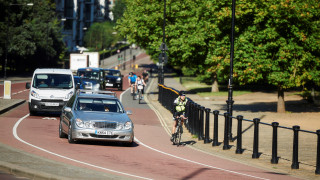In the fifth and final part of his series looking at the government’s Cycling and Walking Investment Strategy consultation, Martin Key, British Cycling campaigns manager, looks at the governance structure proposed to oversee the strategy.
Governments in many other countries have dedicated agencies responsible for cycling. They deliver government policy, develop best practice, award funding, provide technical leadership and work to raise standards.
Unlike for road or rail, there is no government agency responsible for cycling in England. In its place, the government propose to set up an ‘expert committee’ responsible for ‘oversight and delivery’ of the strategy.
It is not clear what powers the committee will have, although it does say that it will be responsible for developing partnerships and working with other government departments. It will be supported by a departmental ‘delivery team’ with representatives of other government departments.
If the committee can develop a genuine working relationship with other government departments then it will be a huge win. Another positive is that the committee will be responsible for developing the next strategy in just a few years’ time.

Governance of the strategy will only be deemed a success if the committee has the necessary power to get stuff done. This could be in the form of a significant funding pot with which to leverage support or political influence if the Secretary of State is made responsible for hitting the targets.
The government is rightly keen to have experts from the business and commercial world as members of the expert committee. Members should be selected because of their expertise and skills rather than because they represent a certain constituency.
British Cycling’s #ChooseCycling Network recently met at the Lee Valley VeloPark. We heard some of the huge range of activities undertaken by members, including GlaxoSmithKline, National Grid and Severn Trent Water, to get more people cycling. They all agreed that they can only do so much, their work must stop at their front door, and it is the job of government to sort out the roads.
These businesses put an economic value on cycling. They see it as good for business. However for these organisations to donate resources to the government’s expert committee they would need to see a tangible output, it must not be a talking-shop.
The government has said it wants the committee in place by October. We will soon find out if it has the power to make a difference.













